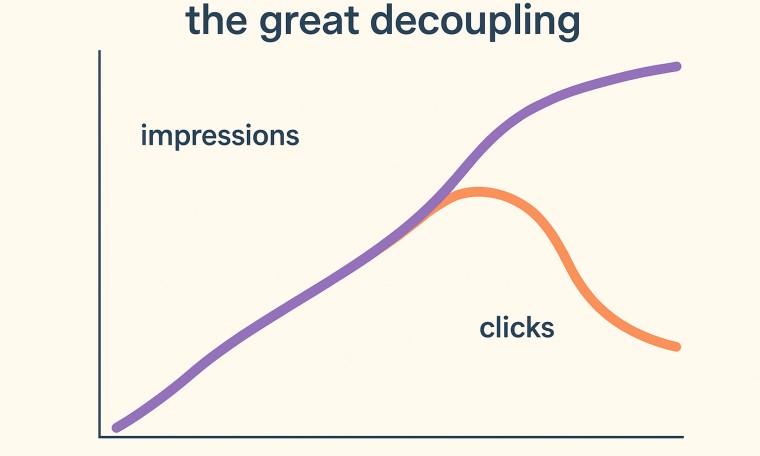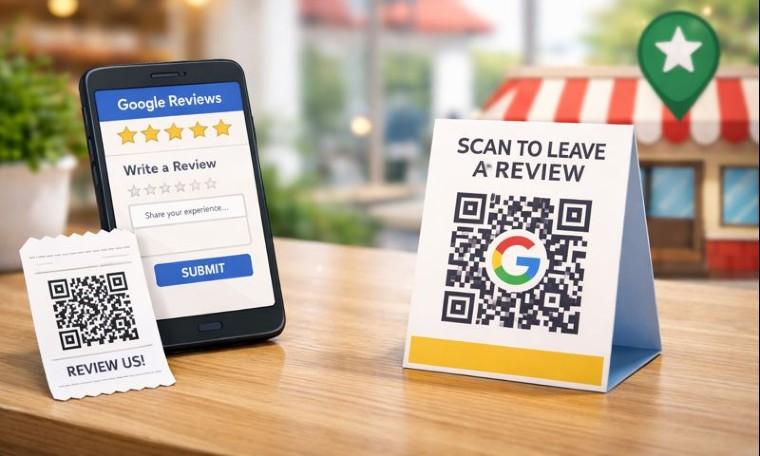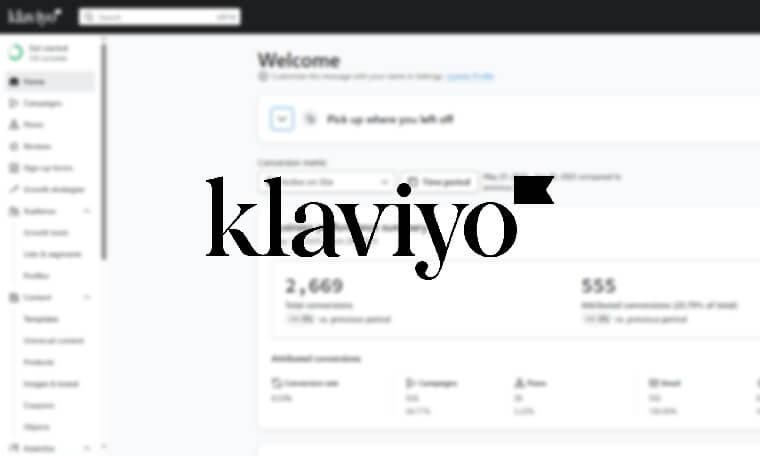The “Great Decoupling” - What Google’s AI Overviews Mean for Your Website Traffic
Monday, 4th August 2025

If you've noticed more impressions but fewer clicks in your Search Console reports, you're not alone. The SEO community has dubbed this shift "The Great Decoupling" - where your visibility goes up, but your traffic goes down.
Back in March, we wrote about how AI is changing the way people search online, and why SEO is more important than ever in the age of AI-powered results. If you missed it, take a look at our blog post on AI search optimisation. Since then, as is common in the world of AI at the moment, things have moved on pretty quickly.
Google's AI Overviews are now a regular feature in search results, and many businesses are starting to feel the impact.
If you've noticed more impressions but fewer clicks in your Search Console reports, you're not alone. The SEO community has dubbed this shift "The Great Decoupling" - where your visibility goes up, but your traffic goes down.
What's Going On?
Google's AI Overviews (formerly Search Generative Experience) are now being shown on around 20% of search queries, especially after the March 2025 core update. These AI summaries pull in information from across the web and display it directly in the search results, often including citations to the websites the AI used.
That means:
- Your content may still be shown, but users get the answer without clicking.
- Figures show that when an AI Overview is present, click-through rates drop by around 35%.
- This affects informational and non-branded queries the most.
In short, Google is doing more of the answering, and so users are doing less clicking.
Should You Be Worried?
Not necessarily. It's a big change, but not all bad news. Here's why:
- More impressions still mean more visibility. Even if users don't click, seeing your brand in search results can build awareness and trust.
- Branded queries are holding up well. In fact, AI Overviews appear in fewer than 5% of branded searches - and when they do, they can actually boost CTR by around 18%.
- Clicks that do happen tend to convert better. Google has noted that these visitors are more engaged and more likely to take action.
What Smart Businesses Should Do Next
We're already helping clients adapt to this new reality, here's what we recommend:
1. Focus on Conversions, Not Just Clicks
With fewer clicks overall, every visitor counts. Make sure your landing pages are clear, compelling, and conversion-optimised.
2. Invest in Your Brand
Branded searches are less affected - and more powerful than ever. A strong brand means people will seek you out directly, even if Google is doing more of the heavy lifting on generic queries.
3. Optimise for AI Answers
This is where Answer Engine Optimisation (AEO) comes in. Structure your content to directly answer questions - think bullet points, FAQs, definitions, and concise summaries.
4. Create Content AI Can't Replicate
Rich media, tools, calculators, original research, and storytelling are harder for AI to summarise - and more valuable to your users.
5. Measure the Right Things
Clicks alone no longer tell the full story. Monitor your conversions, and look at where your brand is being mentioned.
SEO Is Evolving - And So Are We
What we're seeing isn't the end of SEO - it's just another change. But one that demands smarter strategy, deeper insight, and better content. As a web design and SEO agency that's been through more than a few Google shakeups over the years, we're well-placed to help our clients not just respond to these changes but thrive in them.
So if you've noticed your clicks dropping despite good rankings, let's talk. Because in the age of AI search, showing up is only the start - standing out is what counts.




